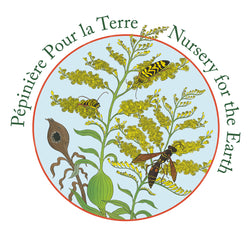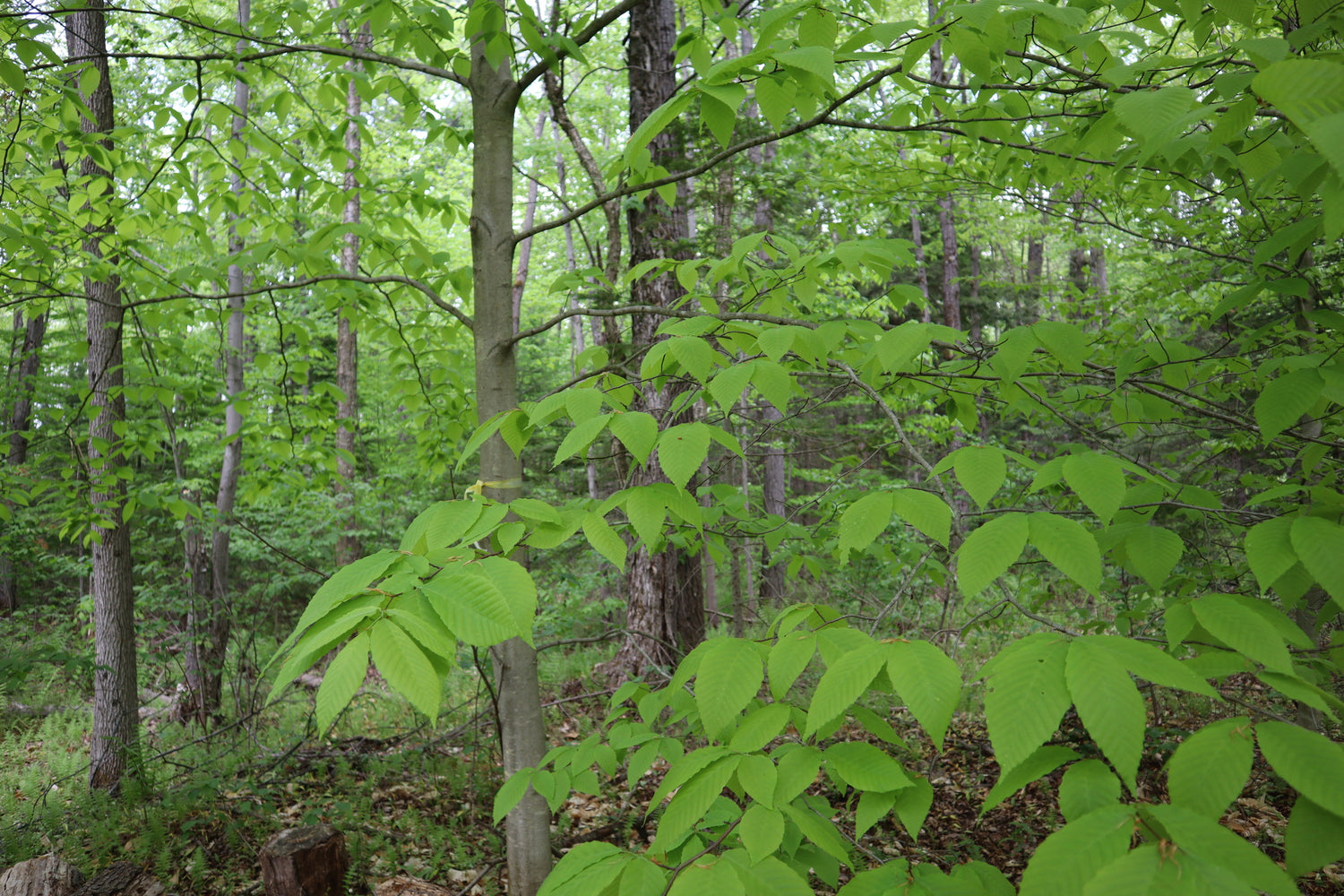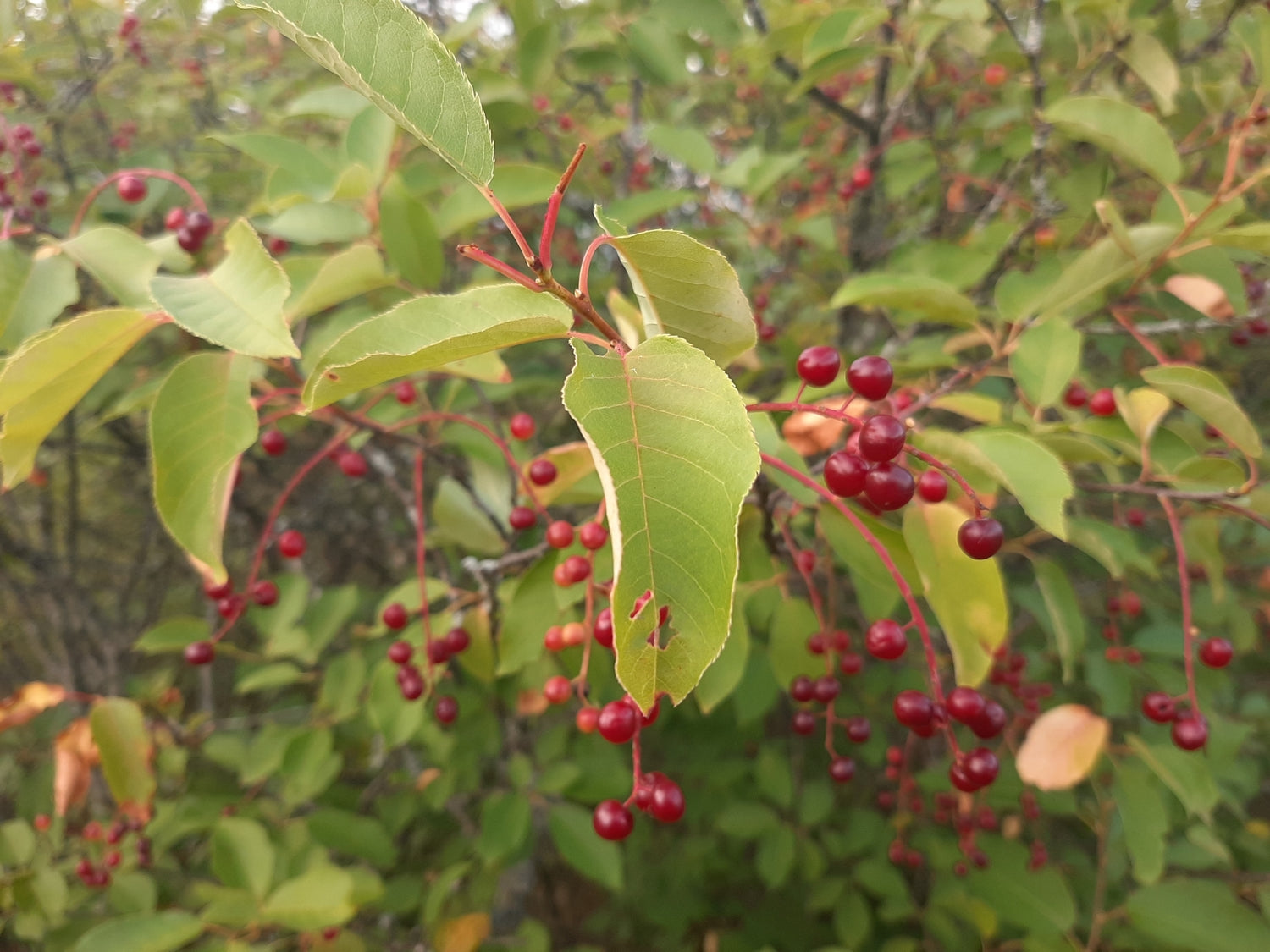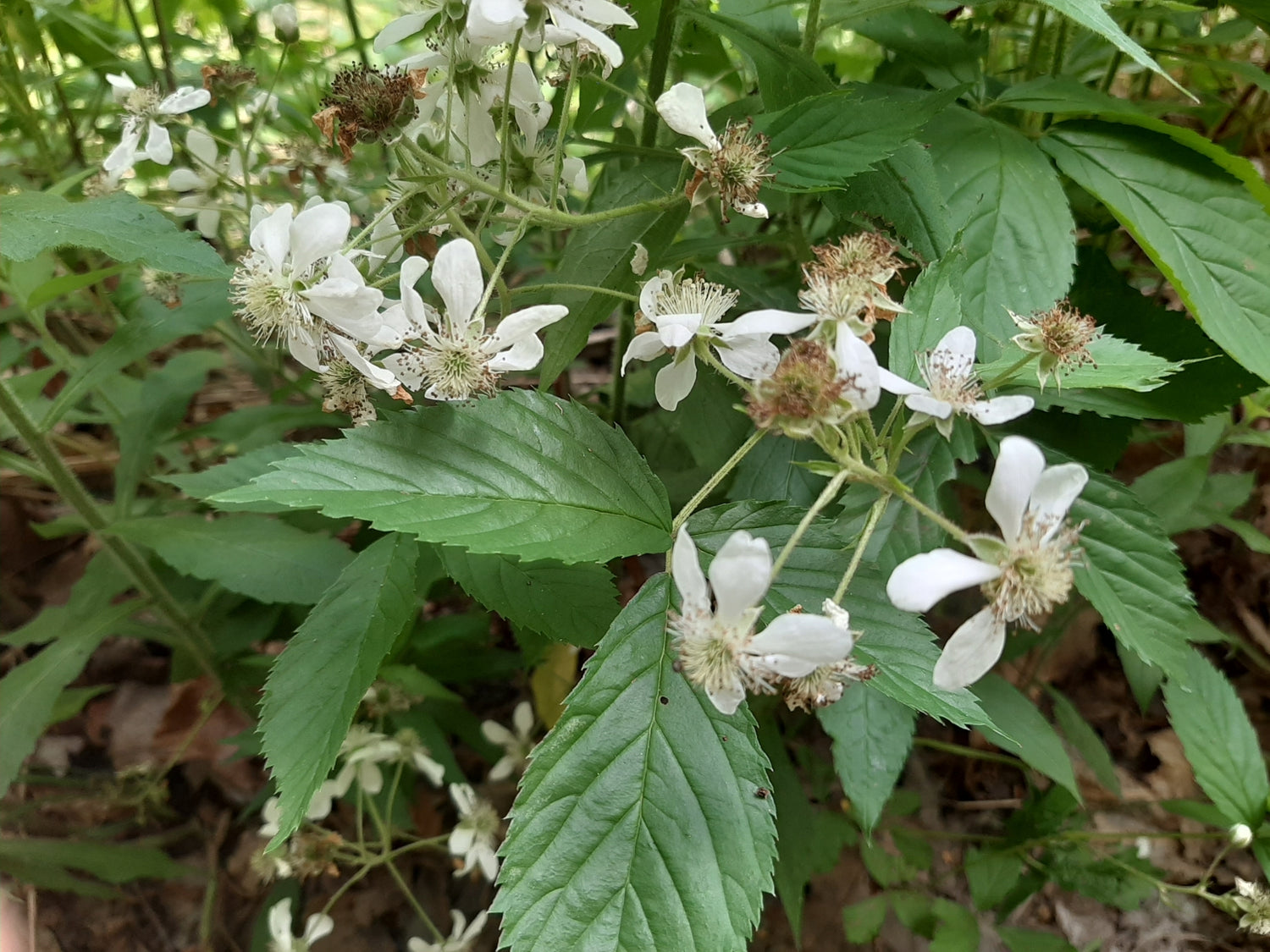Nursery for the Earth
Lonicera canadensis (Fr: chèvrefeuille du Canada | En: Canada fly-honeysuckle)
Couldn't load pickup availability
Canada Fly-Honeysuckle
Lonicera canadensis
Alternative names: Canadian Honeysuckle, Twinberry
French: Chèvrefeuille du Canada
Lonicera canadensis, or Canada Fly-Honeysuckle, is a graceful native shrub found in forests, woodlands, and occasionally in swampy areas. It is well adapted to shady conditions, making it an ideal choice for planting under tree canopies or in the woodland garden.
In April and May, this honeysuckle produces pairs of pale, tubular flowers that appear to glow in low light, especially in the filtered shade of spring woodlands. These luminous blooms are highly attractive to moths and other early-emerging pollinators.
Later in the season, the flowers give way to conjoined red berries—a distinctive and ornamental feature. These berries are a food source for birds and other wildlife.
With its modest size, soft foliage, and seasonal interest, Canada Fly-Honeysuckle is a wonderful addition to shady native plantings.
Height: 1 to 2 m
Bloom time: April to May
Light: Part shade to shade
Moisture: Moderate to moist
Soil: Moist, humus-rich, well-drained
Habitat: Woodlands, forest edges, swamps
Ecological benefits: Supports moths and early pollinators; berries feed birds
Edible: Not considered edible for humans
Share







